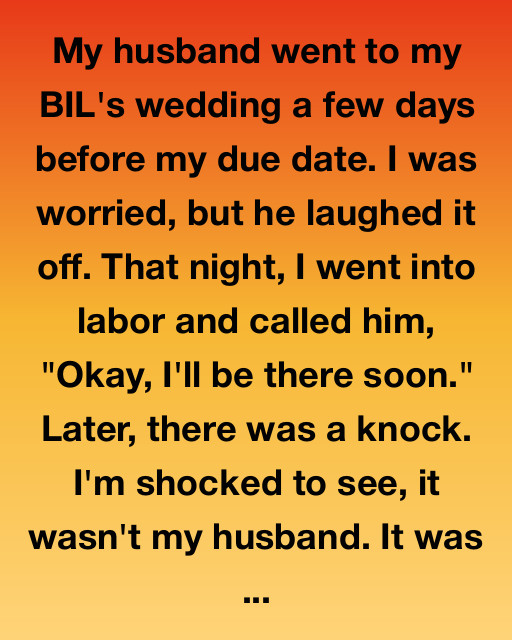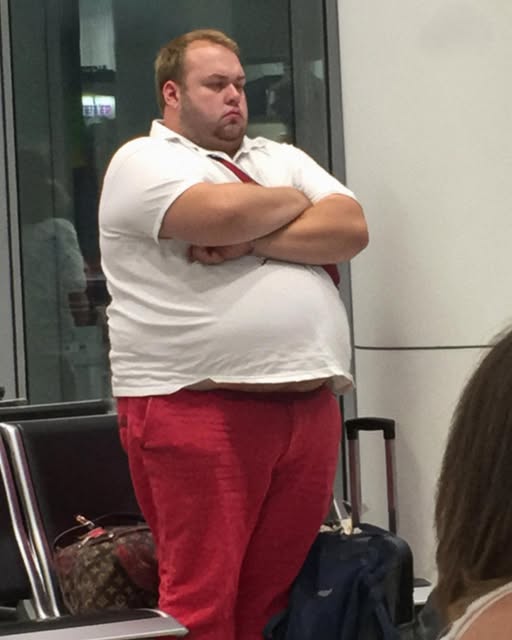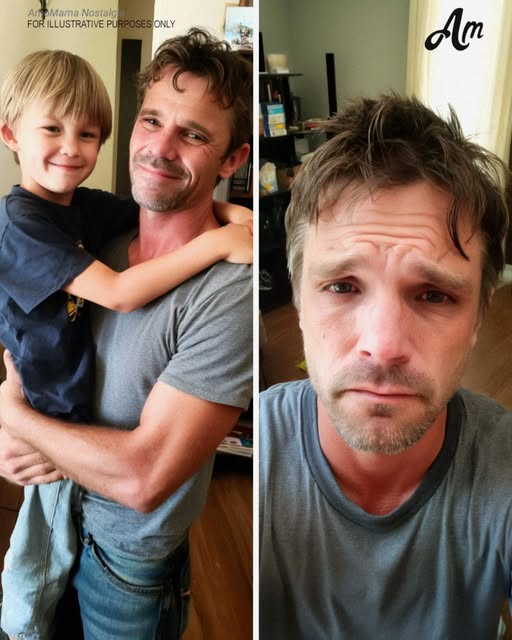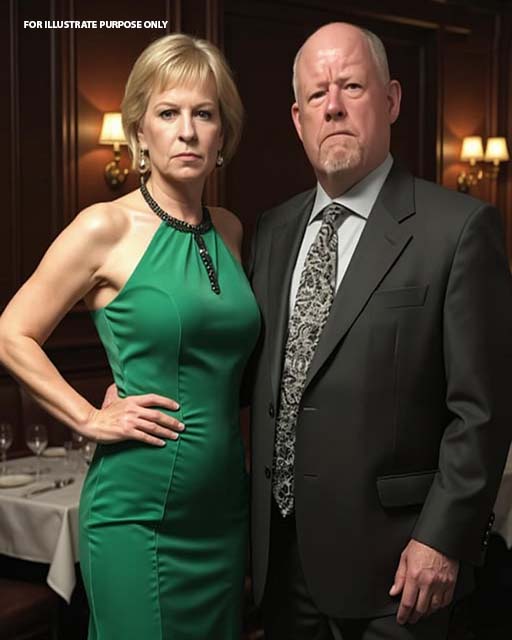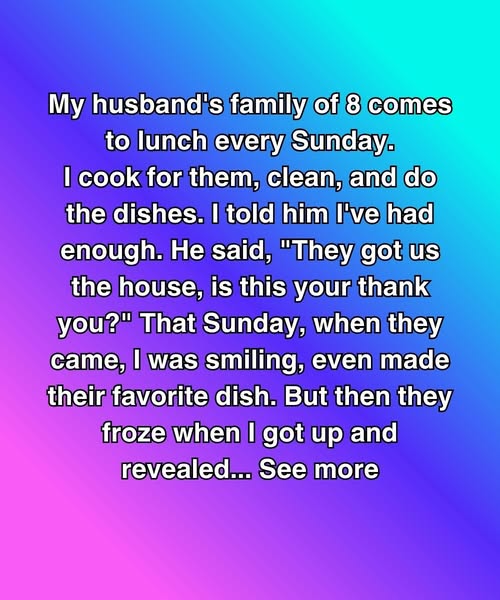He promised he’d be “right there.” It was my due date minus three, his brother’s wedding night, and I was contracting every seven minutes. He laughed it off on his way out the door, tux half-buttoned, cologne too loud. “Call if you need me. I’ll sober up fast.”
When my water broke at 11:42 p.m., I called. He answered over music and shouted voices.
“I’m in labor.”
“Okay, okay—I’ll be there soon,” he said, and hung up.
Fifteen minutes later, there was a knock.
It wasn’t my husband.
Tanya stood on my doorstep in a mauve dress with the hem tucked into one hand and her heels in the other. Mascara a little smudged. Hair still shellacked into wedding curls. My husband’s ex.
“I was at the wedding,” she said, breathless. “I saw your missed call on his phone. He’s… drunk. He’s not coming.”
I laughed. It came out like a crack. “Not coming? I’m in labor.”
“I know,” she said simply. “Let’s go.”
She helped me into her car and talked about everything that wasn’t my husband: the DJ who played “Mr. Brightside” three times, the kid who breakdanced in a bow tie, her boss who hates sparkles. She told me what to put on the hospital bracelet when my hands were shaking too hard to write. She argued with a nurse who wanted us to wait. She walked the halls with me, counted my breaths, pressed a cold cloth to my neck. I asked why, more than once.
“Because he won’t,” she said. “And someone should.”
At 3:17 a.m., my daughter arrived. I was crying and laughing and empty and full all at once. The nurse asked who’d cut the cord. I looked at the door. It stayed closed. I nodded at Tanya. She swallowed hard, nodded back, and did it with steady hands.
He came the next afternoon—crumpled suit, gas-station bouquet, apologies that sounded like shrugging.
“I didn’t send her,” he mumbled, staring at the tile. “She just… showed up.”
“Then she’s already done more than you,” I said. He flinched. He stayed an hour. Didn’t ask to hold the baby. Scrolled.
Tanya brought real food that night. She held the baby so I could shower, helped me into clean pajamas, brushed my hair like we were old friends who’d always done this. When we were discharged, she drove us home. My husband texted a thumbs-up.
She kept showing up. Coffee at 6 a.m. Diapers at 9 p.m. Memes at midnight. She washed bottles while I cried into a dish towel and pretended I wasn’t. She sat on my couch during colic marathons and told me ridiculous stories until the baby fell asleep against her shoulder. She never overstepped. She never asked for thanks. She just filled the empty places without making a sound about it.
One night, after the baby finally surrendered to sleep, I asked, “Do you ever wish you’d married him?”
She actually laughed. “No. He’s charming. He’s never been consistent.”
It landed like a truth I’d always known and never named. I’d fallen for the fireworks and ignored the blackout days. The “forgot my phone” weekends. The parties he “had to” attend while I learned the taste of prenatal vitamins and ginger ale.
When our daughter was three months old, he called to say he was moving for “a great opportunity.” He’d visit “whenever he could.”
“I already am okay,” I said, and meant it.
Tanya helped me file for child support, found me a lawyer, sat through court while he claimed poverty with a watch on his wrist worth more than my rent. She wrote a character statement about me that made the judge look up and smile. The ruling was fair. He left town the next day with a text: good luck with everything.
Life wasn’t suddenly easy. There were nights I rocked on the edge of the bed and thought I would split in two. Bills that pinched. A body I didn’t recognize. But the house was never empty. Tanya brought her new boyfriend, Rahul, who made the baby laugh until she hiccupped. She left casseroles on the porch when I said I was fine and clearly wasn’t. She called me out when I said “sorry” for existing.
For the first birthday, she baked the cake and bullied me into sitting down to eat it. After we tucked the birthday girl into bed, we sat on the couch with tea.
“Crazy how life turns out,” I said.
“I didn’t expect to be here either,” she admitted. “I saw your call that night and knew he wouldn’t come. I couldn’t let you do it alone.”
“Thank you,” I said, and it felt too small for what she’d given me.
Years folded. She became Aunt Tanya, then “Tannie.” She and Rahul married, and my daughter tossed petals down their aisle with such concentration that half the guests cried. In her speech, Tanya lifted her glass and said, “Sometimes you walk into someone’s life to help for a minute, and you accidentally find your family.” We both cried then.
Now my girl is five and runs straight to Tanya when she scrapes a knee or wants a second bedtime story. We take beach trips, burn marshmallows, share holidays. When people ask how we met, we say, “It’s a long story,” and smile.
He sends a birthday card once a year. Nothing else. It’s fine.
Here’s what I know now: the people you think will show up sometimes don’t. And the people you never imagined you’d lean on are the ones holding your hand in fluorescent lights at 3 a.m., cutting cords, scrubbing bottles, showing up again and again without keeping score.
Family isn’t just blood. It’s the ones who stay when it’s messy, who say “because someone should,” and then keep saying it with their actions.
If someone did that for you, tell them. Send this to them. Showing up is the whole difference.
